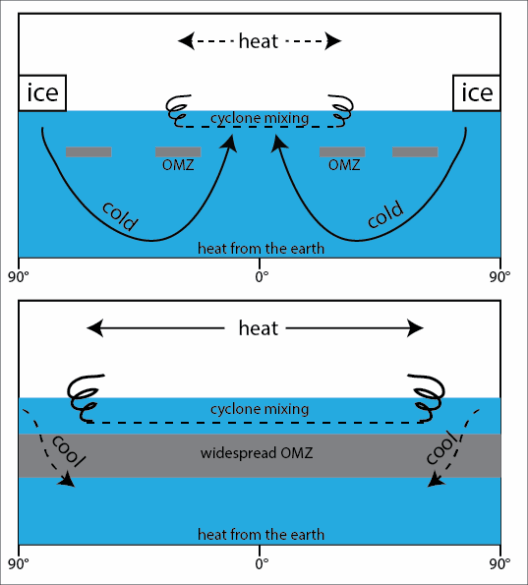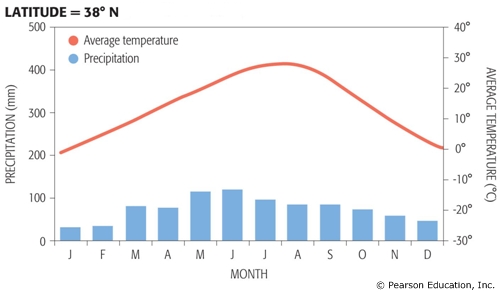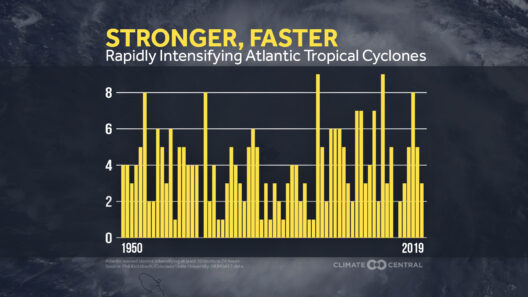Artificial intelligence (AI) has emerged as a pivotal force in various sectors, from healthcare to finance, and now environmental monitoring. However, the substantial computational demands of AI algorithms also raise significant concerns regarding energy consumption and its implications for climate change. This exploration delves into how the rise of AI could inadvertently contribute to the very crisis it seeks to ameliorate.
The increasing sophistication of AI models necessitates larger datasets, more complex calculations, and ultimately, more electricity. Training a single deep learning model can consume as much energy as multiple households would in a year. This energy consumption primarily derives from data centers, which house powerful servers. The expansion of these facilities globally contributes to an elevated carbon footprint, exacerbating existing climate issues.
It is crucial to differentiate between the types of AI applications when discussing their environmental impact. General-purpose AI systems, such as those utilized in natural language processing or image recognition, typically demand higher energy resources. Such systems rely on extensive processing capabilities to analyze vast amounts of data effectively. Conversely, narrow AI applications, which are tailored for specific tasks (e.g., optimizing supply chain logistics), can operate more efficiently, potentially mitigating some of the environmental concerns associated with broader applications.
Moreover, the training phase of AI models proves particularly energy-intensive. The iterative nature of machine learning requires enormous computational power to fine-tune algorithms. As various tech companies race to enhance their AI offerings, they often prioritize model performance over energy efficiency. This has led to a growing discourse around the need for sustainable AI development. Advancements in hardware and software, along with improved algorithms, can mitigate energy consumption, yet the industry remains largely unregulated in this respect.
Another salient factor is the geographical distribution of data centers. The carbon emissions associated with AI operations can vary significantly based on the local energy mix. In regions where energy is generated from fossil fuels, the carbon footprint of AI technologies is starkly higher compared to areas relying on renewable energy sources. This inconsistency underlines the importance of considering not just how AI is used, but where it is deployed. Ultimately, reducing the climate impact of AI necessitates a strategic alignment with green energy initiatives, which can provide a dual benefit of improving AI’s efficiency while reducing its carbon footprint.
AI also finds itself positioned as a double-edged sword in the realm of climate solutions. On one hand, it holds the promise of revolutionizing climate predictions, enhancing resource management, and optimizing energy consumption across industries. AI-driven models can forecast climate patterns with remarkable accuracy, aiding in disaster preparedness and resilience planning. On the other hand, the question remains: at what cost? The operational burdens of AI need to be adequately managed to ensure that the tools designed to combat climate change do not inadvertently accelerate it.
To address these concerns, several strategies and best practices can be implemented. For instance, the adoption of energy-efficient architectures and algorithms can significantly curtail the energy demands of AI models. Techniques such as quantization and pruning reduce model size and complexity without compromising performance. Additionally, companies are encouraged to invest in research focused on green AI, which prioritizes sustainability in the development of AI technologies.
Furthermore, promoting awareness and accountability among tech companies can catalyze industry-wide shifts towards more responsible practices. By committing to transparency in energy usage and carbon emissions, companies can foster a culture of sustainability. Implementing frameworks for measuring the environmental impact of AI models can equip companies to examine their carbon footprints effectively and subsequently make informed decisions regarding their technological advancements.
The intersection of AI and climate change necessitates a multifaceted approach that includes collective action from stakeholders, including regulators, corporate entities, and academia. Policymakers have a key role in ensuring that AI development aligns with climate action goals. Regulations promoting energy efficiency and extensive research funding can incentivize the transition to more sustainable AI practices.
Research institutions also have a vital role in uncovering new methodologies for optimizing AI performance while minimizing environmental impact. They can spearhead innovations in materials science for more efficient hardware or pioneer energy-saving algorithms. This collaborative approach fosters a vibrant ecosystem ready to tackle the intertwined challenges of technological advancement and environmental preservation.
In conclusion, while artificial intelligence holds great potential for addressing climate change, the technology’s intrinsic energy demands must not be overlooked. The dual nature of AI—both as a contributor and a potential solution to climate issues—requires a conscientious assessment of its deployment. By fostering a culture of sustainability while advancing AI, it is possible to grasp the full spectrum of benefits this technology offers without compromising the health of our planet. The dialogue surrounding AI and climate change is only beginning; it is crucial to remain vigilant and proactive to ensure that AI facilitates a sustainable future rather than impedes it.







